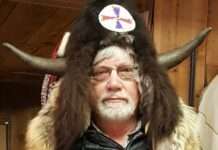 With Widely Varied Opportunities, Horse
With Widely Varied Opportunities, Horse
Ownership Requires Definite Commitments
By Frank J. Buchman
Initial purchase is the easy and inexpensive part of owning a horse.
While cost is always a topic of discussion, most people generally overlook what horse ownership really means.
Gerrie Barnes, widely recognized professional horsewoman in the American Quarter Horse Association, has provided several personal insights.
Having a job, family or other time commitments doesn’t mean one shouldn’t own a horse. “However, time commitment is something to expect when owning a horse,” Barnes insisted. “You need to determine how much time on a regular schedule you have available.”
There are several options to meet personal needs and the needs of the horse before making a purchase, she declared.
When a horse is kept on one’s own property there’s personal responsibility 24 hours a day, seven days a week.
“This type of relationship requires the most amount of time,” Barnes, an instructor with the Certified Horsemanship Association, pointed out.
First, there is the maintenance time. That’s feeding and watering; cleaning stalls, barn, arena and related areas; cleaning tack; restocking supplies; and veterinary and farrier appointments.
Then, there is exercise and riding time. “Not only do you want to ride for your pleasure,” Barnes said. “But you need to be sure to build in daily exercise time for your horse or his health may suffer.”
Boarding can be a permanent arrangement accommodating horse owners with limited access to land, busy schedules and other commitments.
“Although boarding facilities and arrangements differ, a professional facility can generally take care of most maintenance duties,” Barnes said. “Your responsibility is to exercise and ride your horse.”
There are boarding and training facilities that not only assume the maintenance duties, but will exercise and train horses, too.
“Of course, the boarding cost is higher,” Barnes clarified. “The benefit, in addition to training, is that your exercise and riding responsibility is covered.”
Leasing means that someone else owns the horse. “They are renting the use of the horse to you at an agreed-upon monthly rate,” Barnes explained.
There are many types of lease agreements. “Some horses are leased to only one person, and some horses have two lessees,” Barnes said.
Certain leased horses are at a boarding facility, and some are at the owner’s own barn. “Other leased horses even come home with you,” the horse professional verified.
Lease rate is usually based on the total monthly cost, including boarding plus farrier and regular medical bills.
“In addition to agreeing on the lease rate, you will want to agree with the owner on all the variables. Who does what and when, and know what you can and cannot do with the horse,” Barnes said.
Since leasing frequently involves not only sharing costs but sharing responsibilities, there is some time flexibility, depending upon the arrangement.
“Leasing can also help you decide whether you want to own a horse at all,” Barnes said.
A lease-to-own agreement gives one the option of trying out a particular horse for a while without committing to purchase.
Horses can be ridden for lessons allowing the most amount of flexibility. “You don’t own the horse and are not responsible for maintenance or exercise and riding time,” Barnes said.
“If you find an instructor you respect who owns a few school horses, you can make an appointment that fits into your schedule,” she clarified
“Depending upon the instructor, you can groom and tack the horse or the horse can be ready to ride when you arrive,” Barnes continued. “At the end of the lesson, you go about your life and the instructor cares for his or her horse.”
CUTLINE
Leasing a horse or taking lessons from an instructor on “school” horses can be an option on the path to horse ownership, according to Gerrie Barnes, instructor with the Certified Horsemanship Association.




